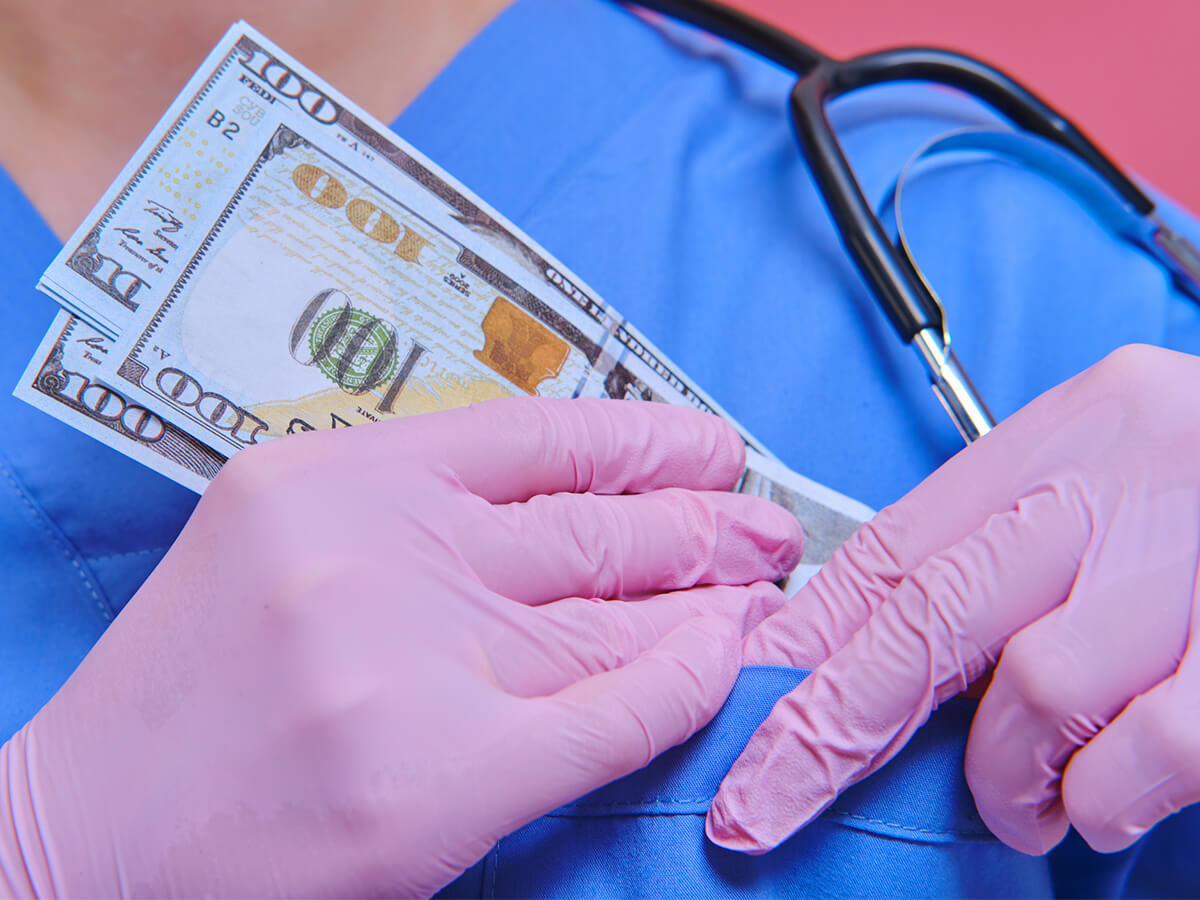As of September 2023, 73% of medical school graduates carry a student debt, with an average of $201,000 for the class of 2019. Small wonder, then, that many physicians, dentists, nurse practitioners and registered nurses choose to work a second part-time job or “side hustle.” Luckily, across specialties and practice areas, there are plenty of clinical and non-clinical side hustles for healthcare providers out there.
In addition to boosting your earnings, a part-time job can yield many non-fiscal benefits, including the opportunity to diversify and build your career, or the chance to become an in-demand expert or thought leader in your field.
Also, in this era of high clinician burnout rates, a second, non-clinical job may give you a welcome break from medical studies or patient care, but without any negative impact on your household income.
Here are 4 Popular Non-Clinical Side Hustles for Healthcare Providers:
Teaching and Training
Most local colleges have a range of health-professions degree or certificate programs, which creates a consistent need for qualified instructors and guest speakers. In addition to traditional classroom or online teaching, many allied health training programs need experienced clinicians as field examiners, raters and trainers. For example, The American Heart Association provides CPR and Emergency Cardiovascular Care (ECC) training and education.
Don’t want to leave your home to work? Even before COVID-19, many academic programs have adapted part or most of their curricula for delivery over online educational platforms. To research or get started in a part-time teaching role, simply contact your local college or training program.
Medical Writing and Editing
Medical writing has a number of sub-specialties with the overall field. Generally, medical writers write for audiences and readers across the healthcare ecosystem, from providers, to medical device and pharmaceutical companies, to researchers and continuing medical education (CME) organizations. Editors at peer-reviewed and other medical publications require you to distill and present scientific data and research via attractive graphics and clearly written, accurate narratives. Sound familiar? This is an area where your medical education–plus your research and statistical analysis experiences- will set you apart.
To get started as a medical writer, build up a portfolio of published writing samples. Also, by joining the American Medical Writers Association (AMWA) you can avail of the organization’s online educational webinars—while also finding a local clinical-writing community via the AMWA’s chapter that’s closest to you. An added bonus: The AMWA is a good way to get started in your medical-writing job search.
Consumer Blogging and Feature Writing
Many consumer or advocacy publications will pay you to share your clinical expertise or specialty. Unlike medical journals or reports, consumer publications appeal to patients, caregivers and the general public. For example, the award-winning health information site, VeryWell Health uses writers who have extensive knowledge and real-world clinical experience who can communicate and simplify complex information for consumers and patients.
Again, if you’re new to health writing, you don’t have to go it alone here. The Savvy Scribe Collective website and Facebook group, co-founded by a registered nurse (RN), provides a digital home for healthcare professionals and health writers—including online training programs and workshops.
Alternatively, many doctors, nurses and other clinicians start their own health blog, such as this site, “House Call Doctor,” where clinicians write about their practice areas, including non-clinical topics such as work-life balance, financial planning and physician practice management strategies. An added bonus for healthcare bloggers: You may monetize your blog or website to provide steady income via advertisements or affiliate marketing programs.
Affiliate Marketing
From looking for a new restaurant to purchasing a laptop, we tend to trust our colleagues’ or friends’ recommendations. Affiliate marketing is built on this peer-to-peer endorsement in which a business pays another business or influencer (that’s you!) a commission for sending web traffic and or sales their way. Healthcare professionals become an affiliate of companies that provide products such as medical supplies, medical alert services, medical scrubs and others. Best of all, once you have set up the designated affiliate marketing link on your blog, website or YouTube page, your job is pretty much done, and your commission earnings can begin.
BoardVitals Affiliate Program
Through the BoardVitals Affiliate Program, we aim to partner with those involved in the healthcare industry with the ability to reach physicians, nurse practitioners, physician assistants, clinicians, medical & nursing students and others. As a BoardVitals affiliate, you can earn commission on sales you send to BoardVitals where purchases are made through your unique affiliate link. This opportunity extends beyond your blog or website. If you have a YouTube channel or a professional newsletter, posting your affiliate marketing link will earn you some passive and consistent income.
Join our program today and earn up to $300 for every sale you send our way!




